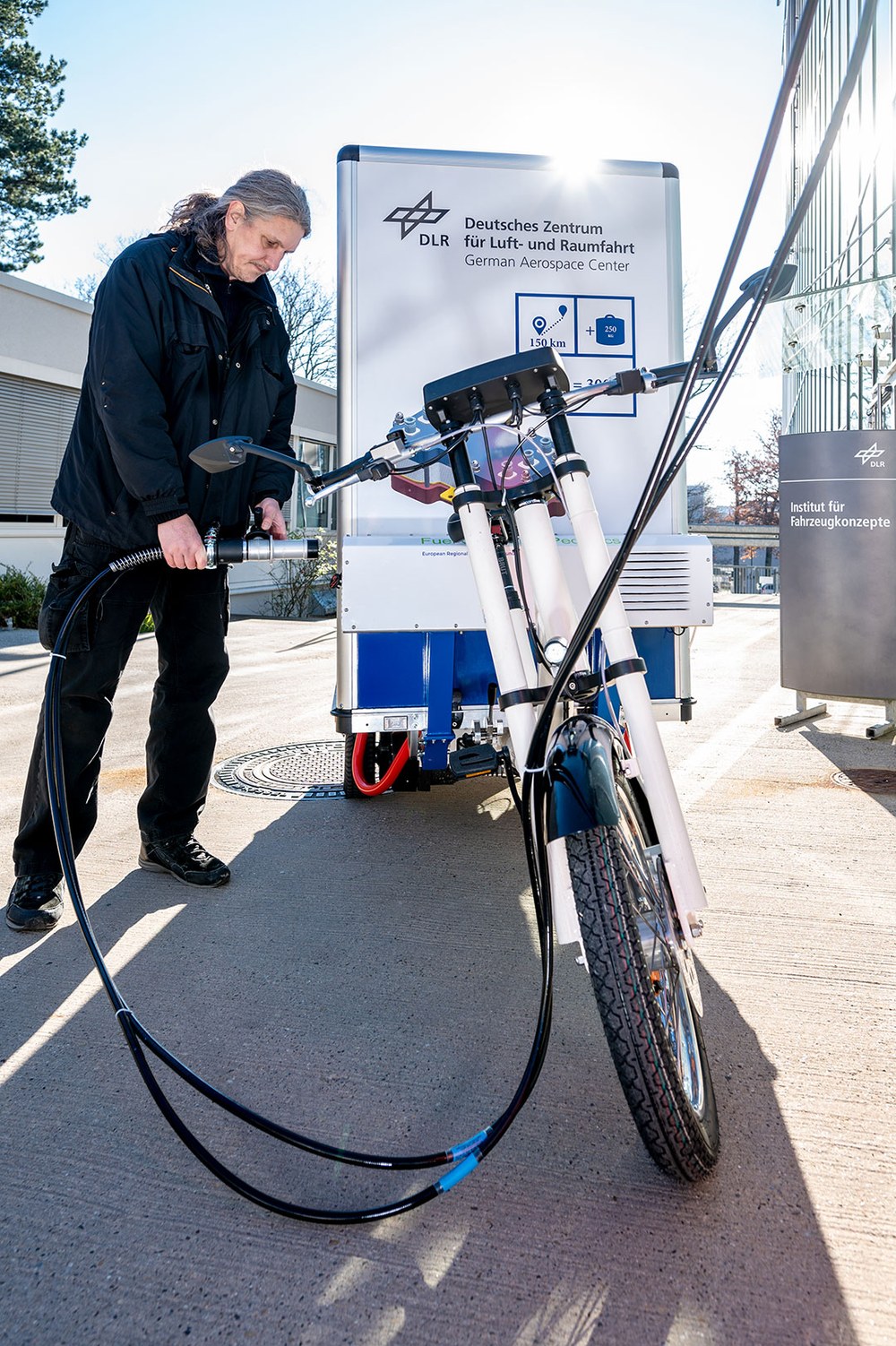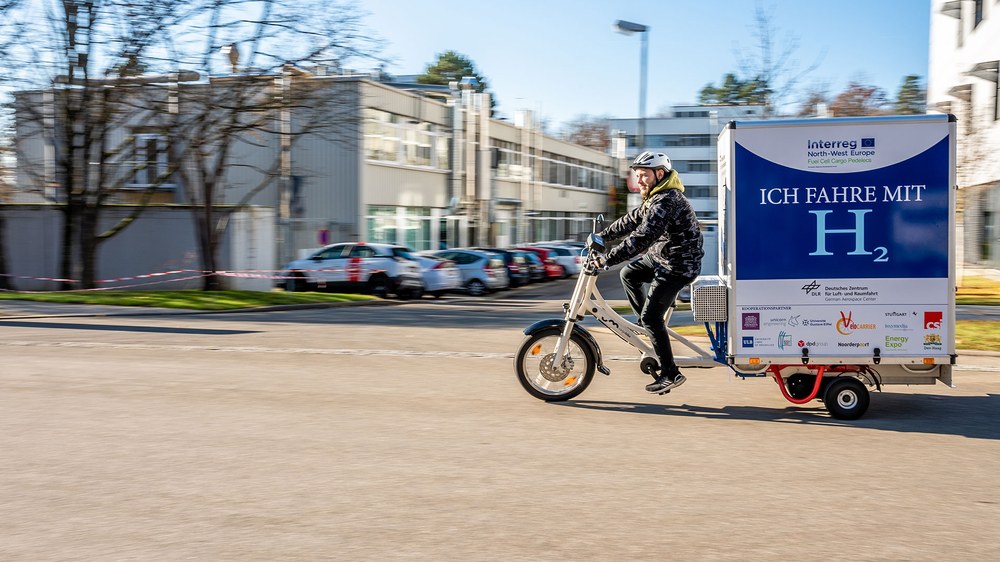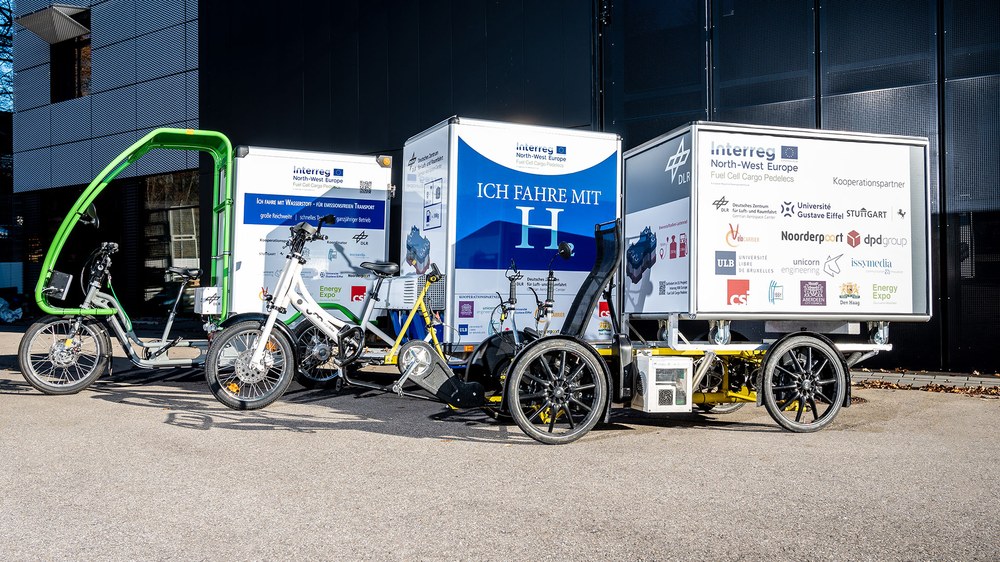The focus is on applications with high range requirements in urban centers. Compared to battery-powered vehicles, vehicles with a fuel cell system can offer a longer daily service life, short refueling times and a long range.

The special features of the fuel cell system developed at DLR include a continuous output of 400 watts with a maximum output of 1,000 watts and a hydrogen tank with a capacity of 300 grams, which can be filled in around three minutes. The range per tank filling is around 150 kilometers. The system has metallic bipolar plates, is liquid-cooled and has a cold-start capability down to a temperature of -20°C.
This innovative and holistic logistics concept could benefit, for example, craft businesses as well as parcel and delivery services. It could also be used as a compact refuse collection vehicle, for delivering heated or chilled meals and as a means of transportation for companies with extensive premises.

In the future, this concept could be used to make freight transport in pedestrian zones and other inner city areas much more sustainable. This logistics concept is attractive for European cities as well as for metropolitan areas worldwide. At the same time, the fuel cell system offers the possibility of a power supply independent of the grid.
In addition to the DLR Institute of Technical Thermodynamics, the DLR Institutes of Vehicle Concepts and Transport Research as well as partners from research, logistics and European municipalities are also involved in the project.

